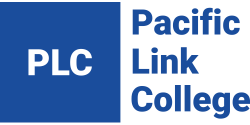ECCE155
The Montessori Classroom and Language Arts Course
Quick Links
Course Overview
Montessori is a method of education that is based on self-directed activity, hands-on learning, and collaborative play. In Montessori classrooms, children make creative choices in their learning with age-appropriate activities to guide the process. This course introduces the general theory of the Montessori method and have students plan, develop, and practise activities focused on the creative arts or encouraging creativity in students in various subjects like language arts, science, geography, nature, and mathematics. Students will develop activity plans and create materials for activities in various settings. The course also introduces other methodologies and their distinctive features, such as Reggio Emilia, Waldorf, academic, and play-based programs.
Upon completion of this course, participants will be equipped with the knowledge and skills to effectively implement Montessori and language arts techniques. They will be able to create a language-rich environment that nurtures children’s natural curiosity and fosters their literacy development.
Course Details
- Classroom Policies and Procedures
- Classic and Supplemented Montessori Classroom
- Montessori Education and Special Needs
- Criticism of the Montessori Method
- Essential Qualities in Your Montessori Classroom
- Montessori and Language Arts
- Math Materials
Learning Outcomes
Upon successful completion of the course, students will be able to:
- Prepare a classroom schedule based on the Montessori philosophy
- Describe the Montessori philosophy, education, and method, including classroom policies, mixed-aged classrooms, decentralised learning, self-directed learning, focus on the concrete, minimal pretend play, integrated curriculum, uninterrupted work time, character education, minimal external rewards, homework, and technology, and other characteristics
- Set up a classroom and identify learning materials in a Montessori classroom
- Observe and discuss activities in Montessori classrooms, especially in language arts
- Create materials for room care, art, geography, science, cultural, personal, sensorial, math, and language
- Design activity plans and conduct the activities for different types of materials
- Discern and differentiate between Montessori and other methods, such as Reggio Emilia, Waldorf, academic, and play-based schools and daycares.
Learning Methods
- Lecture/presentation
- Discussion
- Individual assignments
- Slide presentations, videos, and visual representations
- Facilitated group work
- Facilitated observations and recording activities
- Supervision of hands-on creation and conducting of learning centre activities

